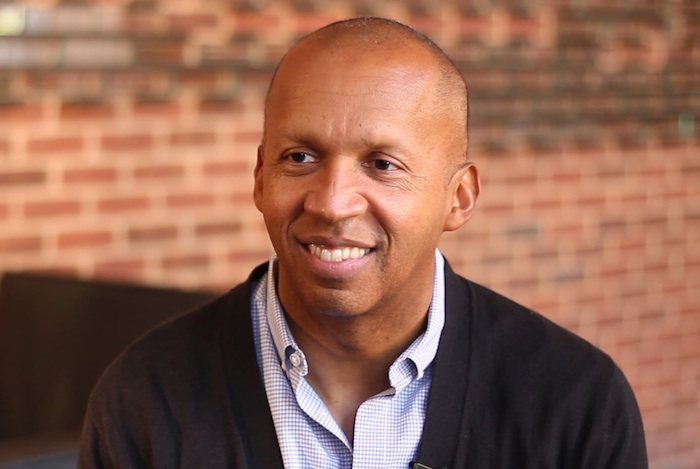Some people escape to lake houses, some to cabins in the mountains, others to villas overseas.
Me? When I want to get away by myself, I splurge on a fancy hotel.

That’s Hanni and me luxuriating in a lovely hotel room in Chicago a few years back.
What luxury — a plush robe waiting for me, my bed gets made every morning, clean towels magically appear in the bathroom, and when I walk through the lobby everyone — from the doorman to the people behind the front desk — asks if they can help me. Some even call me by my name. “Hello, Ms. Finke.” “Welcome back, Ms. Finke.” “Ms. Finke? May I help you to the elevator?”
Those of you old enough to appreciate James Thurber (or young enough to have bothered seeing Ben Stiller’s film adaptation of Thurber’s classic last year) will understand why I refer to my hotel stays as Walter Mitty experiences.
Staff at expensive hotels are used to taking care of demanding customers, so I don’t really stick out when I ask for extra help. “Can you cut a corner from the keycard? “ I ask. When I explain how that would help me feel which end to put in the key slot, no one flinches. “Our pleasure, Ms. Finke.” “May I help you with your bag, Ms. Finke?”Of course I say yes. The bellhop escorts most other guests to their rooms, so it feels downright normal to have him take my Seeing Eye dog and me to ours, too.
Once in the room, the first conquest is the phone. “How do I dial downstairs?” I ask the bellhop. “What’s the number for room service?” Next stop? The bathroom. I feel through my bag for rubber bands. “Which bottle is shampoo?” I ask. At one hotel, I washed my hair with lotion. You only have to do that once to learn a lesson. Now I stretch a rubber band around the bottle of lotion to differentiate it from the others.
I put a rubber band on our hotel doorknob, too. When my Seeing Eye dog leads me to it later, the rubber band will confirm we’re at the right place. Before the doorman leaves, I ask one last question. “Is the radio alarm on?” While he checks, I feel through my wallet for tip money and extend my arm in his general direction. “Thank you, Ms. Finke,” he says, and he’s out the door.
Hotel rooms are predictable, simple, easy to get around. The furniture is rugged, sometimes even bolted to the floor. Nothing fragile on the dressers or countertops. I can’t break anything.
Early on in my blindness, I would have never imagined this possible. Me. Spending a night alone in a hotel room. I feel like a grown-up.

And that’s Whitney ensconced before a gigantic rain forest shower that came inside a gigantic bathroom that was inside a gigantic suite we stayed in once.
All of my memoir classes are on hiatus until after Independence Day, and Tomorrow my Seeing Eye dog Whitney and I are taking a train to a new boutique hotel we haven’t stayed in before. I’ll spend our quiet time there finishing a manuscript I’ve been working on — the one about all I learn from the memoir-writers I work with and how I manage to lead the classes without being able to see. I’m looking forward to the escape , hoping (finally) to finish this manuscript of mine. Time to get packing!





